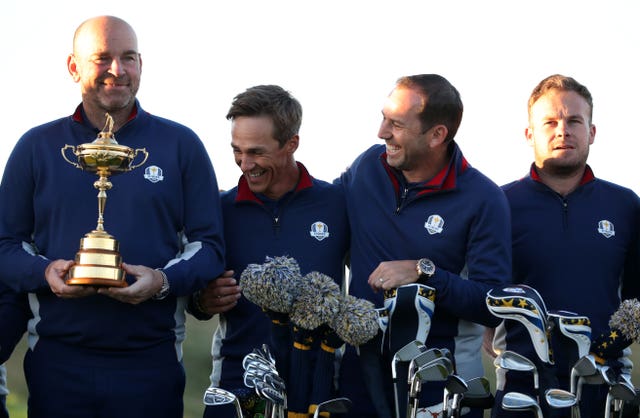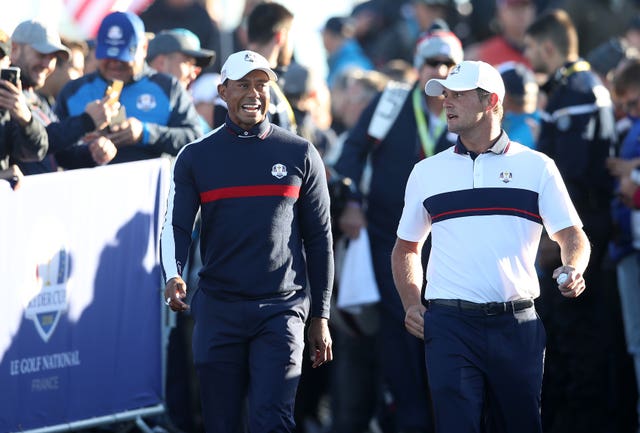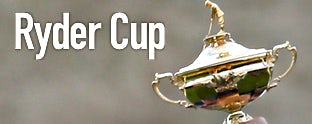The 42nd Ryder Cup begins on Friday – but what can the team selections tell us about what to expect at Le Golf National?
Europe's squad is heavy on new faces while the United States have given another chance to veteran pair Tiger Woods – a winner in last week's Tour Championship in Atlanta – and Phil Mickelson.
Here, Press Association Sport analyses the two squads' past records and what to expect from the rookies and the captains' picks.
The rookies

With Thomas Bjorn's European squad containing five rookies, how they adapt to the big stage will be of vital importance.
Jon Rahm, Tommy Fleetwood, Tyrell Hatton, Alex Noren and Thorbjorn Olesen will go up against a strong American side.
But the performance of past European rookies bodes well for the home team.
Over the past 10 Ryder Cups dating back to 1997 there have been 43 first-time selections for Europe, combining for 60.5 points in 131 matches.
That means the average European rookie has played 3.04 matches and picked up 1.4 points and if Bjorn's uncapped quintet can keep up that average, it will be worth seven points and ease the burden on their experienced team-mates.
The USA have given first caps to 37 players in that same timeframe, also playing 131 matches between them and earning 65 points. If Justin Thomas, Bryson DeChambeau and Tony Finau can match that performance it will translate to five points, perhaps with an additional half, from 10 or 11 matches.
Captains' picks

Though Finau and DeChambeau were given their first Ryder Cup call-ups as two of Jim Furyk's four additional selections, this year's wild cards otherwise have a hugely experienced look.
The pair are joined by Woods and Mickelson, veterans of a combined 17 Ryder Cups and 75 matches, while Bjorn turned to Henrik Stenson, Sergio Garcia, Paul Casey and Europe's talisman Ian Poulter to add experience to his line-up.
The 23 European wild cards since 1997 have combined for 47.5 points in 86 matches, an average of 3.73 matches and 2.06 points per appearance.
Multiplied by four, that gives an expectation of 8.24 points in 14.92 matches – almost exactly in line with Poulter, Garcia, Casey and Stenson's respective averages per Ryder Cup, which tally up to nine points from 15.
Woods and Mickelson have indifferent Ryder Cup records – Woods has won 14.5 points out of a possible 33, and Mickelson 18.5 from 42. Their combined average per tournament is around four points from nine matches, though it is likely that Woods in particular could play less regularly this time given the demands of back-to-back 36-hole days on his surgically repaired back.
Twenty nine American rookies have scored a total of 50 points in 96 matches since 1997, an average of 3.31 matches and 1.72 points per rookie per tournament.
That would mean 6.88 points in 13.24 matches between four players – if DeChambeau and Finau perform in line with past rookies and combine for 3.5 points in seven matches, it would need Mickelson and Woods to contribute around 2.5 or three in six outings to make up that tally.
Poulter and Reed lead the way
Poulter, not surprisingly, is Europe's stand-out player with a record of 12 wins, two halves and four defeats – 13 points from a possible 18.
Justin Rose and Rory McIlroy, with 12 and 11 respectively from 19 matches apiece, are not far behind while Garcia, a veteran of eight previous Ryder Cups stretching back to 1999, is the leading scorer on either team with 22.5 points from a possible 37.
The other returning players have solid records, with one exception – Francesco Molinari failed to win any of his six matches in 2010 and 2012, managing just a pair of half points including one in a dead singles rubber against Woods at Medinah.
America's answer to Poulter is Patrick Reed, with seven points from nine over the last two events and a similarly galvanising – and polarising – influence.
Jordan Spieth has five points from nine matches while Brooks Koepka took three from four in 2016 – and has since won two majors. Bubba Watson, though, has a 3-8 win-loss record while Rickie Fowler has just 4.5 points from 11 matches.











